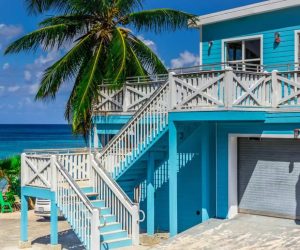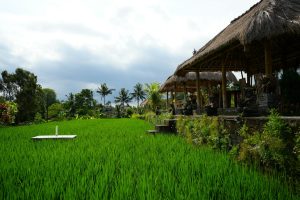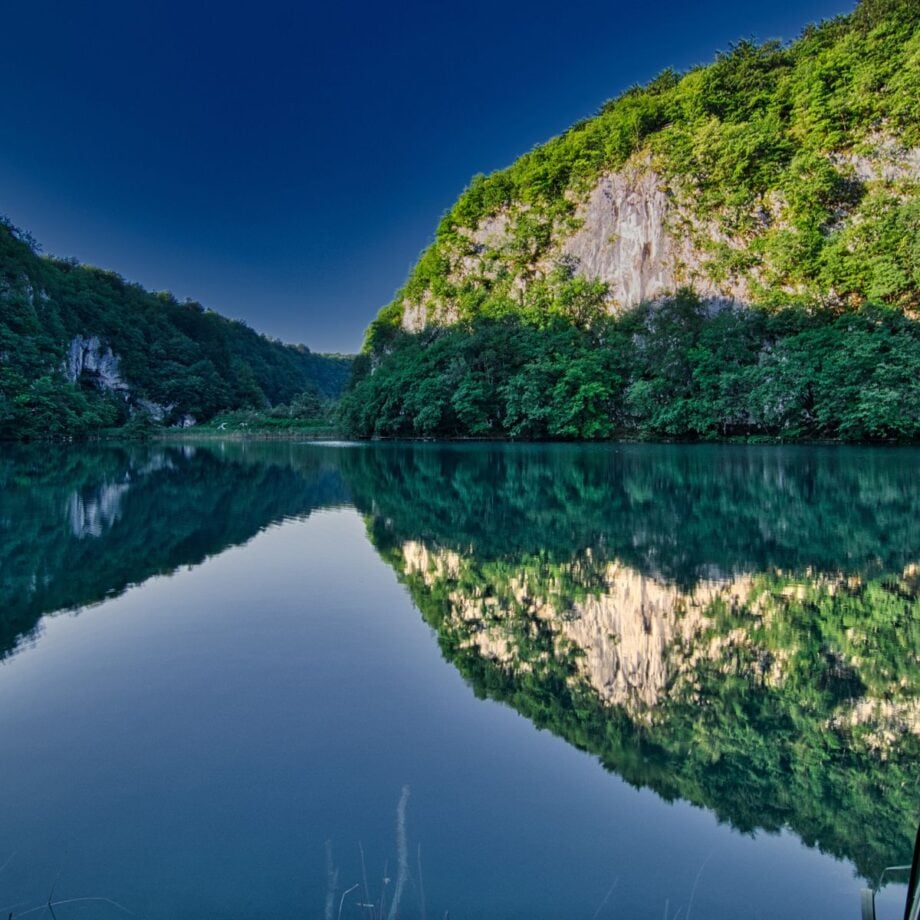
The Lower Lakes are nested in a limestone canyon, a position which allows them to offer striking and spellbinding vistas to visitors. The stepped terraces of the lakes change colour depending on the season and the time of day, from blue-green, cyan and emerald in the winter to turquoise and deep forest green in the summer. The lakes are home to many fishes. You can see them swimming peacefully in the pristine waters, fully aware they are safe here. Walking trails meander alongside the lakes, leading visitors to connect and fall deeper in love with nature.
Beginning of the Lower Lakes – Milanovac and Gavanovac lakes
Milanovac Lake is the first and the largest lake within the Lower Lakes system in the Plitvice Lakes National Park. The lake is flanked to the east and the west by great cliffs over 20 meters high. Visitors may choose between one walking trail leading alongside the lake and another one leading along the upper side of the canyon, with many stone lookouts and viewpoints. The impressive Milanovac Waterfall is 10 meters high. The walking trail along the east coast of the lake features a memorial plaque dedicated to Gustav Jane?ek. Gustav Jane?ek was so captivated by the beauty of the Plitvice Lakes, that he established Society for the Arrangement and Beautification of Plitvice Lakes in 1893. As president of the Society, Jane?ek initiated the construction of the first walking trails and the opening of the first rest stops in the Plitvice Lakes, thus also initiating the systematic tourist promotion of the area.
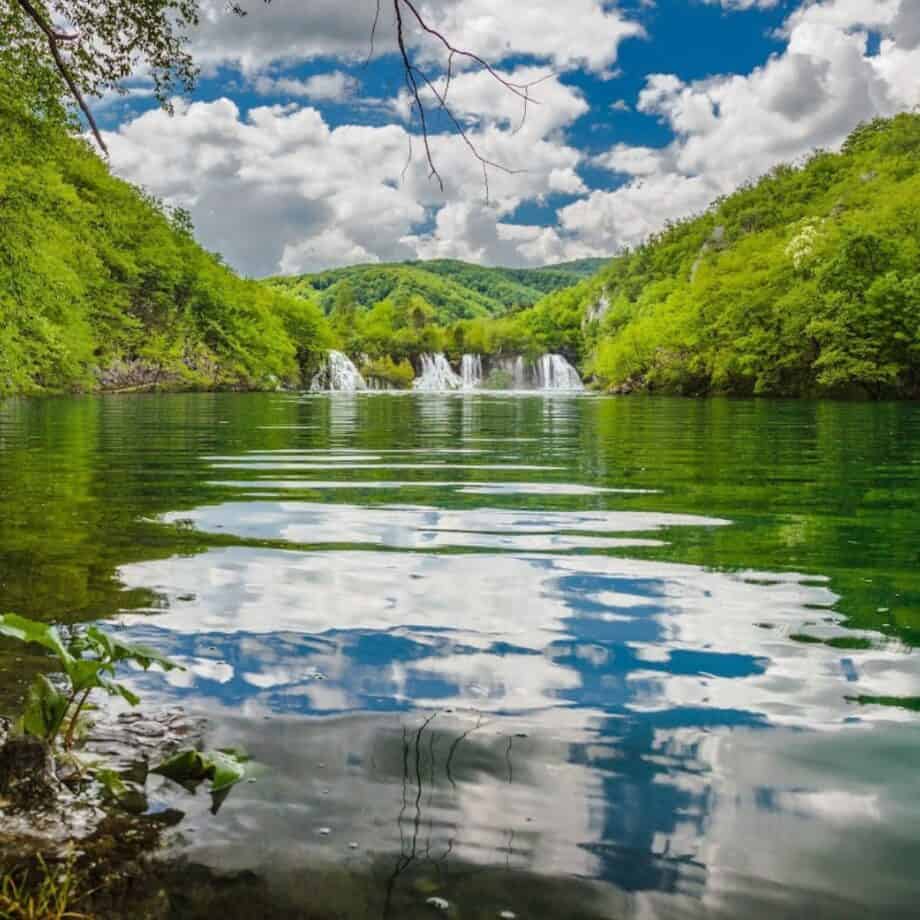
The Milka Trnina Waterfall flows over the barriers between the Milanovac and Gavanovac lakes. Milka Katarina Trnina was a famous Croatian opera singer who made her name performing the roles of tragic heroines in the operas of Richard Wagner. Trnina was also a humanitarian, and she donated all the proceeds from her concert held in the Croatian National Theatre in 1897 to the Society for the Beautification of Plitvice Lakes and their Environs. To honour her, one of the most beautiful waterfalls within the Lower Lakes was named after her. The Gavanovac Lake flows over the tufa barriers known as the Big Cascades and into the Kalu?erovac Lake. The Gavanovac Lake was named after a man named Gavan, whose hidden treasure, as the legend goes, lies at the bottom of the lake.
S-view
The lookouts and viewpoints in the Plitvice Lakes National Park play a very important role of offering the visitors different and unique opportunities to enjoy the natural beauties. One of the more popular ones is the S-view, or the “View of the S trail”. This viewpoint offers a grand view of the Big Cascades, with the water rushing furiously over the tufa barriers, creating a soundscape to go with the visual spectacle. The wooden S boardwalk was built using chestnut wood and offers a unique sense of connection with the surroundings. This promenade enables visitors to pass safely and at the same time respects the ecological balance in the park. But what really sets this viewpoint apart is the view of the lakes opening before you. The colours of the pristine waters and their surreal clearness leave every visitor speechless. The experience is so much more than a simple tourist visit: it is a journey which stays with you forever.
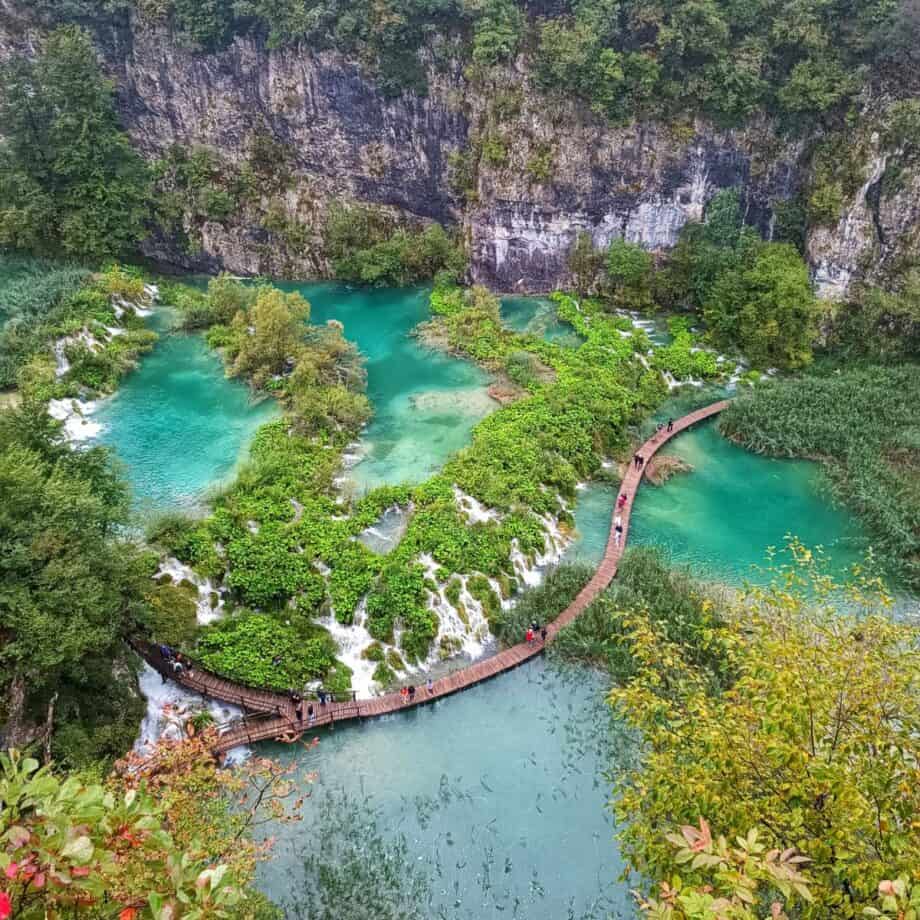
Last lakes within the Lower Lakes system – Kalu?erovac and Novakovi?a Brod lakes
If you start walking from Entrance 1 of the Plitvice Lakes National Park, the first two lakes you come upon are also the last lakes in the whole Plitvice lake system: the Kalu?erovac Lake and the Novakovi?a Brod Lake. These two lakes can be seen glistening in the Lower Lakes canyon, lazily flowing into one another. The Kalu?erovac Lake has an interesting legend attached to it: in a cave above the lake there once lived a hermit, and the cave supplied him with everything he needed to live. There are many stories of the hermit, or Kalu?er, treating people and animals using his knowledge of herbs. Kalu?erovac Lake also has one of the most famous waterfalls in the park, the Big Cascades, featured on most of the photographs of the area and displaying all of the grandeur of the tufa formations. The waters from the lake are carried over the waterfalls and into the Novakovi?a Brod Lake, named after the space between the lake and the river Korana. Although the Novakovi?a Brod Lake is among the smaller lakes in the park, it is by no means any less impressive. This lake flows over to form the Sastavci Waterfall, the last of the waterfalls in this magnificent system, which is soon joined by the waters from the Big Waterfall to form the river Korana.
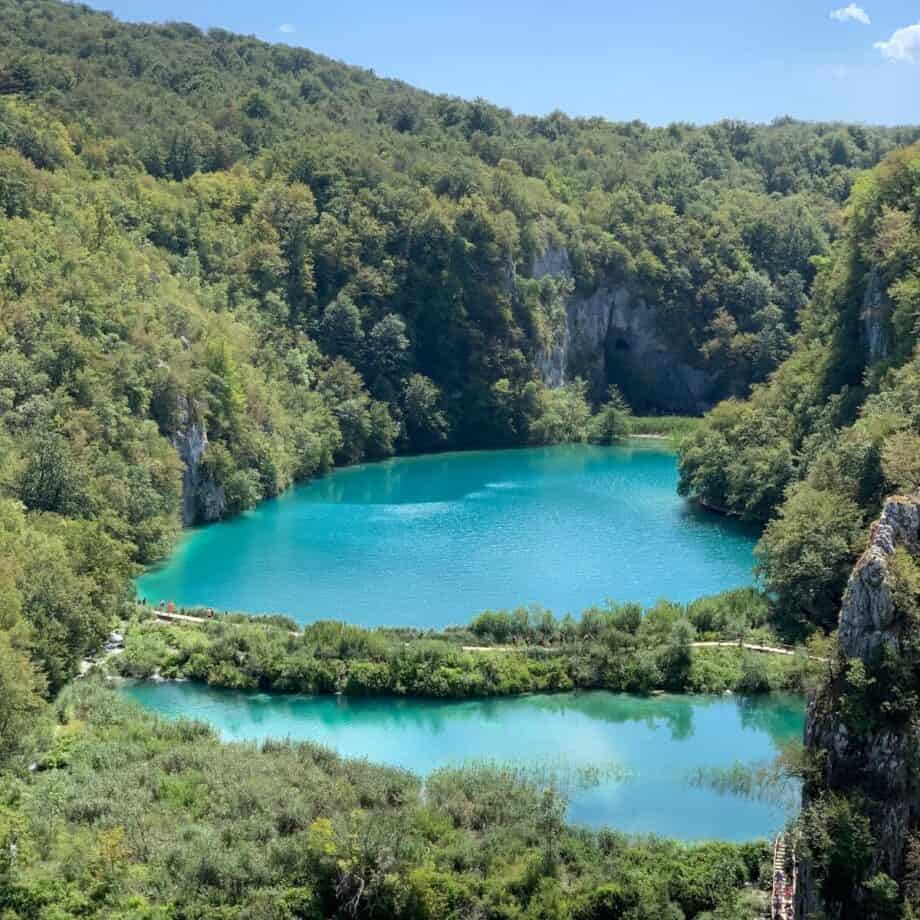
Big Waterfall, Sastavci Waterfall and River Korana
Big waterfall is a real gem of the Plitvice Lakes and should not be missed when visiting. This spectacular waterfall is created by the Plitvice stream rushing over a cliff. The spring of the Plitvice stream is located about 3 kilometres further and is not part of any of the 16 lakes. Measured at to the first pond below the waterfall, the waterfall is 62 meters high, and measured at the beginning of the course of the river Korana, it is 87 meters high, making it the highest waterfall in the Plitvice Lakes National Park and in the whole of Croatia. Big Waterfall and the Sastavci Waterfall form the spring of the river Korana. One interesting fact about the river Korana: it is a part of the Black Sea basin, which means that the waters from the Plitvice Lakes travel all the way to the Black Sea. This way, the waters of the Plitvice Lakes are connected with all the seas around the world, which is another proof that the Plitvice Lakes are not only a natural treasure, but a global one. One special feature of the Big Waterfall is how it changes over the seasons. Even though its splendour is available for visitors to enjoy throughout the year, it is especially impressive in wintertime, when the temperature can drop so low below zero that the waterfall freezes over, creating a spectacular image you will remember forever. Another interesting thing to note are the weddings: between 1968 and 1990, Plitvice weddings were held at the park. The first one, in 1968, was held right under the Big Waterfall, leaving a lasting mark in the history of this park.
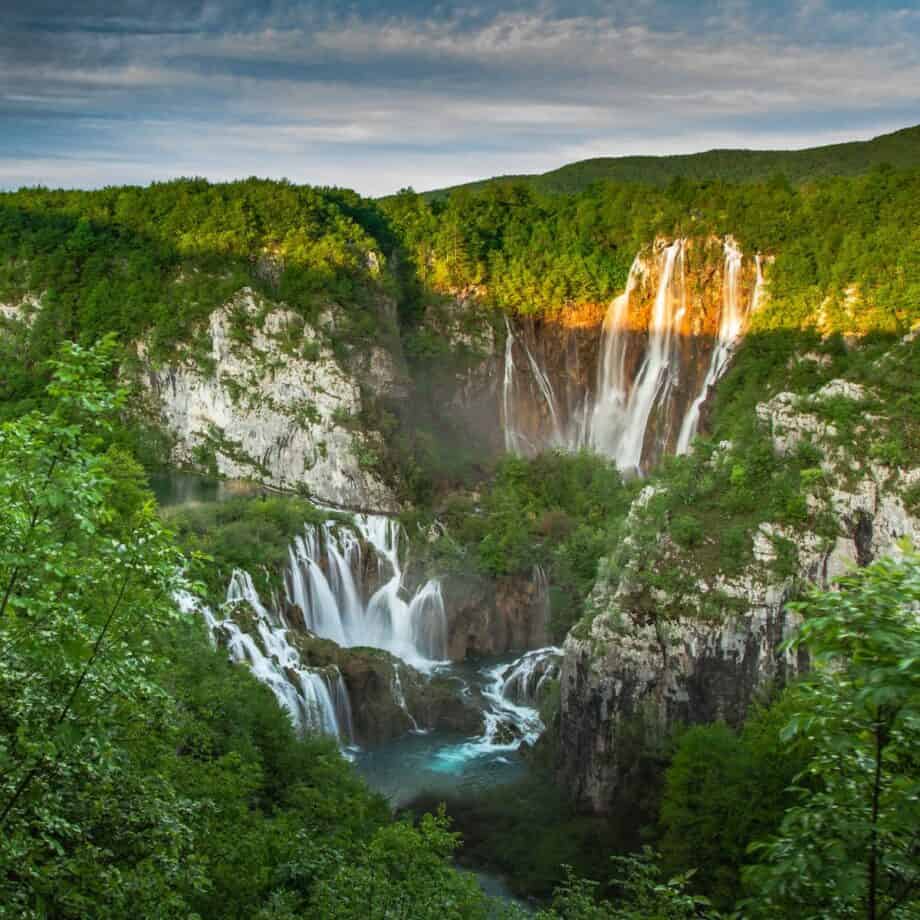
The Lower Lakes are a precious gem among the many treasures of this national park. Visitors usually take 3 to 4 hours to walk around this part. Do not miss the opportunity to visit the Plitvice Lakes National Park, a breathtaking natural beauty of rich history.
Did you enjoy this article?
Receive similar content direct to your inbox.
Please enable JavaScript in your browser to submit the form


